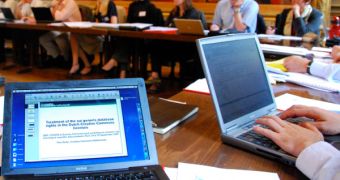The international scientific community has been constantly losing credibility over the past years because some of its members simply enjoy fraud, and thus fail to present concrete and correct data when asked for their objective assessment. The Research Integrity Forum of the European Science Foundation (ESF), a newly-formed organization, whose purpose is to crack down on scientists behaving “erratically” and “unprofessionally,” convened in Madrid between November 17-18, to discuss issues regarding the integrity of researchers worldwide.
The organization says that there are currently three methods in which scientists can deceive the trust people put in them – fabrication, when data are simply made up and passed as peer-reviewed, falsification, when experiment results are purposefully misinterpreted, to suit a certain goal, and plagiarism, when a scientist presents a work belonging to a fellow researcher as his or her own.
Thus far, according to estimates, ESF hypothesizes that around 0.1 to 1 percent of the entire scientific community tells lies about the results they come across during tests, but that a few high-profile cases can easily attract a very bad public perception on the whole community. However, about 10 to 50 percent of all researchers have engaged in questionable practices while conducting their tests, at least once in their career.
In America, the US National Science Foundation went a step further in preventing and punishing frauds and attempting frauds, as legislation allows it to subpoena evidence from research institutes, if allegations of fraud are brought forth. The institution can also force researchers to attend ethics courses, or even remove them from the research activity permanently, if the fraud they committed is very serious.
"Society requires science and researchers to solve the problems that concern all of us. In general, public opinion has a good image of the honesty of scientists. We cannot allow it to be lost," says Co-Organizer Professor Juan José de Damborenea, of the Spanish National Research Council (CSIC), which worked with ESF in organizing the conference.

 14 DAY TRIAL //
14 DAY TRIAL //